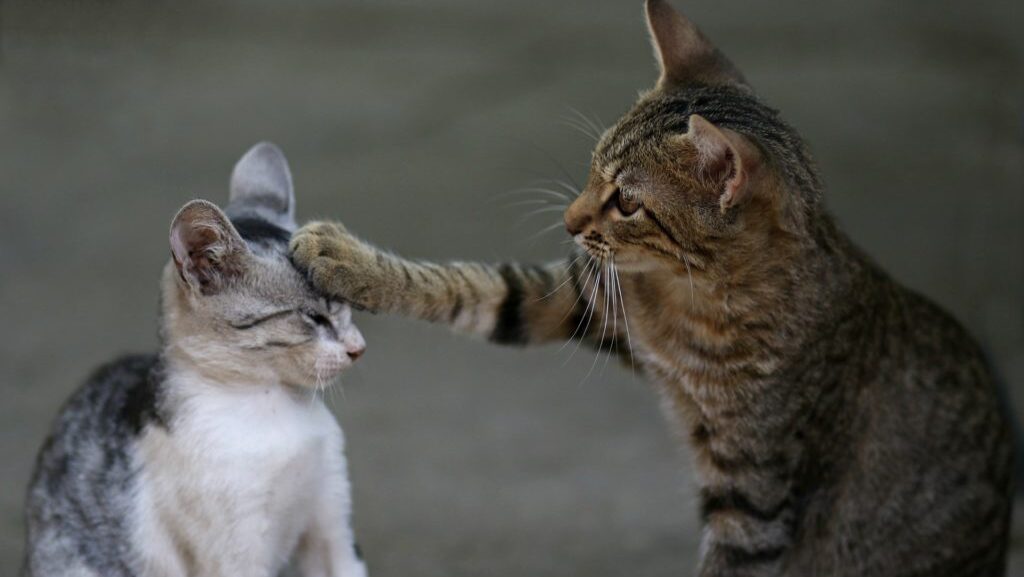They may impact you but they may not be about you
Our close personal relationships often feel like we’re under a microscope, as we examine, react and judge each other’s actions and intentions. Under the distress of the current COVID-19 pandemic these interpersonal tensions may feel even more acute, particularly when we’re in confinement with each other. This tension can boil over causing us to lose balance and a healthy energy in our relationships. Let’s take a look at this damaging tendency and rethink our role in it.
Relationships offer a unique opportunity for our personal growth, though typically not without some disturbances and challenges. Our closest relationships showcase the underlying chronic issues that each person brings into the union, as our personal history and wounds spill over into the relationship.
Our tendency is to blame each other for these disturbances, which usually results in each person feeling invalidated and devalued. When this occurs, we pull back from the sense of oneness that likely brought us together at the start. We then begin to differentiate issues as his problem or her issue. What may have begun as a loving connected partnership begins to dissipate into conflict.
Interested in bespoke marriage and relationship counseling from Mel Schwartz? Reach out!
Coming Undone
I’d been working with a couple in the early years of their marriage. Jill had divorced shortly before she met John and had two teenaged children from her prior marriage. She maintained a close, if not amicable, relationship with her former spouse. As our sessions progressed it became evident that Jill’s need for cordiality with her ex-husband and her inability to say no to her children was masking an underlying issue. She actually felt compelled to be well thought of, by both her kids and their father, which caused her to avoid confrontation on any level. She appeased her ex and avoided appropriate parental guidance for her children from her need to avoid any upset.
This provoked her new husband John, who felt undermined, if not betrayed by her behavior. He experienced Jill as being more sensitive to her ex-husband’s needs than to his own. We came to appreciate that Jill’s need to avoid confrontation and displeasing others had its roots in her childhood. Because she felt unloved by her parents, Jill’s coping mechanism was to try to please them to get any positive attention she could muster. So, Jill not surprisingly acclimated to her role as a people pleaser, which she continued to exhibit later in life. The irony is that she was actually displeasing her current husband so as not to upset her ex and her children.
John came into their marriage with abandonment issues dating back to his mother’s abandonment of him at an early age. He shared that he was particularly sensitivity to issues of rejection since childhood. Feeling unloved by Jill, he critiqued every aspect of her interactions, texts and emails with her former husband and her children. He didn’t feel partnered with her. As a result, Jill felt perpetually examined and criticized by John. Their relationship started to unravel as they blamed each other for its demise.
How am I contributing to our struggle?
When we see each other’s insecurities and challenges as their problem, but don’t see how our past wounds may contribute to the conflict, we are tricked by the illusion of separation. Think, “It’s their fault.” Their issues become our issues as ours become theirs.
The problems may be different, but they are in no way separate. Picture a drop of ink as it drips into a beaker of water. The ink disperses throughout, and you can no longer find its trail. The same thing happens in relationship. Each person’s fears, hopes, challenges and issues become entangled with their partner’s.
In couple’s counseling I often hear, “I have no issues, but my spouse surely does.” How silly. Your partner’s unresolved issues no doubt impact you and your personal challenges. You are both as inextricably connected as two people on a seesaw. Ask yourself, “What are my issues that I should be addressing?
As I continued working with John and Jill I helped them understand how their core wounds and coping mechanisms each contributed to their overall upset. I worked with Jill to develop a stronger self-worth-to find her voice- enabling her to overcome her timidity around parenting. I helped John see that Jill wasn’t abandoning him so much as operating from her own preexisting fear.
Their problems were indeed very personal to them, but it was essential for them not to personalize them.
They each came in to their marriage with their own history of fears, doubts and insecurities. These issues were of course quite personal to each of them. And these matters no doubt impacted both of them. Unresolved personal issues always ripple out and impact those close to us. The goal is to recognize the burdens we both carry and to choose not to think, “They are doing this to me.” As we release this habit of victimization we can reflect on how we might assist each other and as importantly look at how we contribute to the upset. This approach invites mindful relationship, freer from reactivity, blame and anger.
This article was excerpted from Mel’s book The Possibility Principle: How Quantum Physics can Improve the Way You Think, Live and Love. Mel offers virtual therapy globally. Contact him here.





This is well written and very relevant, thank you for sharing.